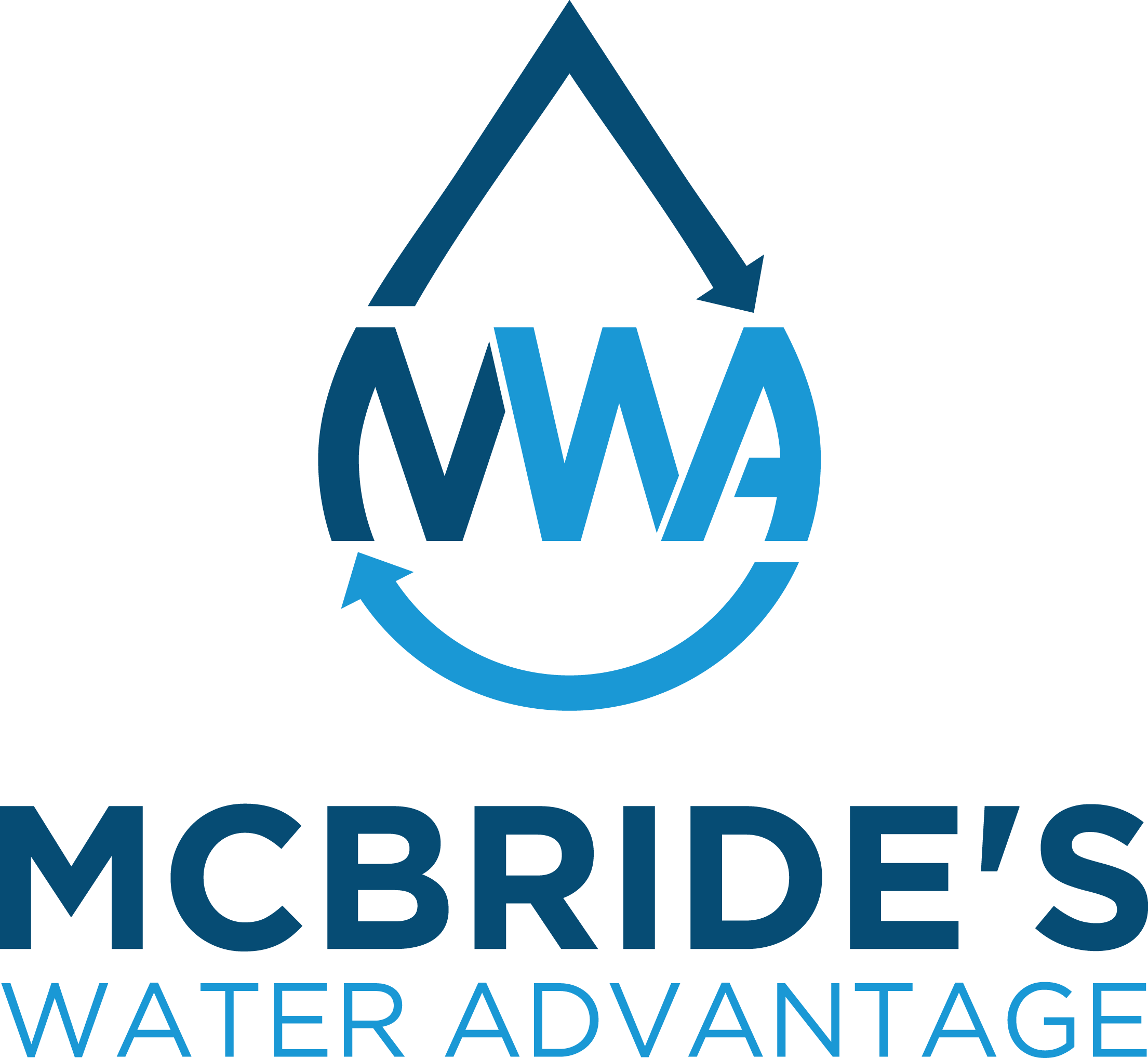 There are many different ways to treat water, and each method can be used for a different purpose. The type of water treatment system that’s right for your home depends on the specific quality issues that your water faces, which can be uncovered by having your water tested by McBride’s Water Advantage. One type of water treatment system that is useful for treating aesthetic issues in water is an activated carbon water filter. Today we’re going to talk about what an activated carbon water filter is, how it works and how it can be used in conjunction with other types of water treatment systems!
There are many different ways to treat water, and each method can be used for a different purpose. The type of water treatment system that’s right for your home depends on the specific quality issues that your water faces, which can be uncovered by having your water tested by McBride’s Water Advantage. One type of water treatment system that is useful for treating aesthetic issues in water is an activated carbon water filter. Today we’re going to talk about what an activated carbon water filter is, how it works and how it can be used in conjunction with other types of water treatment systems!
What is an activated carbon water filter?
An activated carbon water filter is a category of water treatment systems that uses a carbon-based media such as charcoal. The media in a carbon filter undergoes a process that produces millions of tiny pores throughout the carbon-based material, allowing water to flow through the media.
The filtration process used by an activated carbon water filter is called “adsorption.” Adsorption gets its name from “adhesion,” which is used to describe what happens when one particle clings to another.
When water flows through the pores of activated carbon media, the contaminants in the water are attracted to the carbon material and adhere to it. By the time water flows out of the other end of an activated carbon filter, many of the contaminants that were originally in the water will have stuck to the carbon media and are left behind, thus improving the quality of the water.
How can an activated carbon filter improve the quality of your water?
Activated carbon water filters are most effective at removing organic matter from your water because organic matter is highly responsive to the adsorption process. Many of the organic contaminants that are removed by a carbon filter give off offensive tastes and smells. As a result, activated carbon filters are great for improving the aesthetic qualities of your drinking water.
In particular, carbon filters are extremely effective at removing the taste and smell of chlorine from water. Chlorine is the most commonly-used disinfectant by water treatment plants and is also used to treat private wells, making a carbon filter a very popular choice for many different homes across New Hampshire.
Activated carbon filters are often used in conjunction with other types of filters
Although activated carbon filters are very effective at what they do, there are a number of contaminants that carbon filters do not remove from water, including iron, nitrates and certain chemicals and inorganic compounds. As a result, carbon filters are often used as a pre-filter for other filtration methods that take care of the problems that carbon filters do not address.
Because activated carbon filters are so effective at removing chlorine from water, they are often used as a pre-filter for water softeners. That’s because chlorine can damage the resin beads inside of a water softener’s tank, which reduces the softener’s effectiveness and decreases the lifespan of the softener’s resin bed.
If you have any questions about an activated carbon water filter, or if you’d like a water system serviced or installed in your home, contact McBride’s Water Advantage, your water softener and water filtration system dealer in Epsom, New Hampshire. We provide service all over New Hampshire, including towns like Dover, Rochester and Gilford, NH.
photo credit: carbonair via photopin (license)
